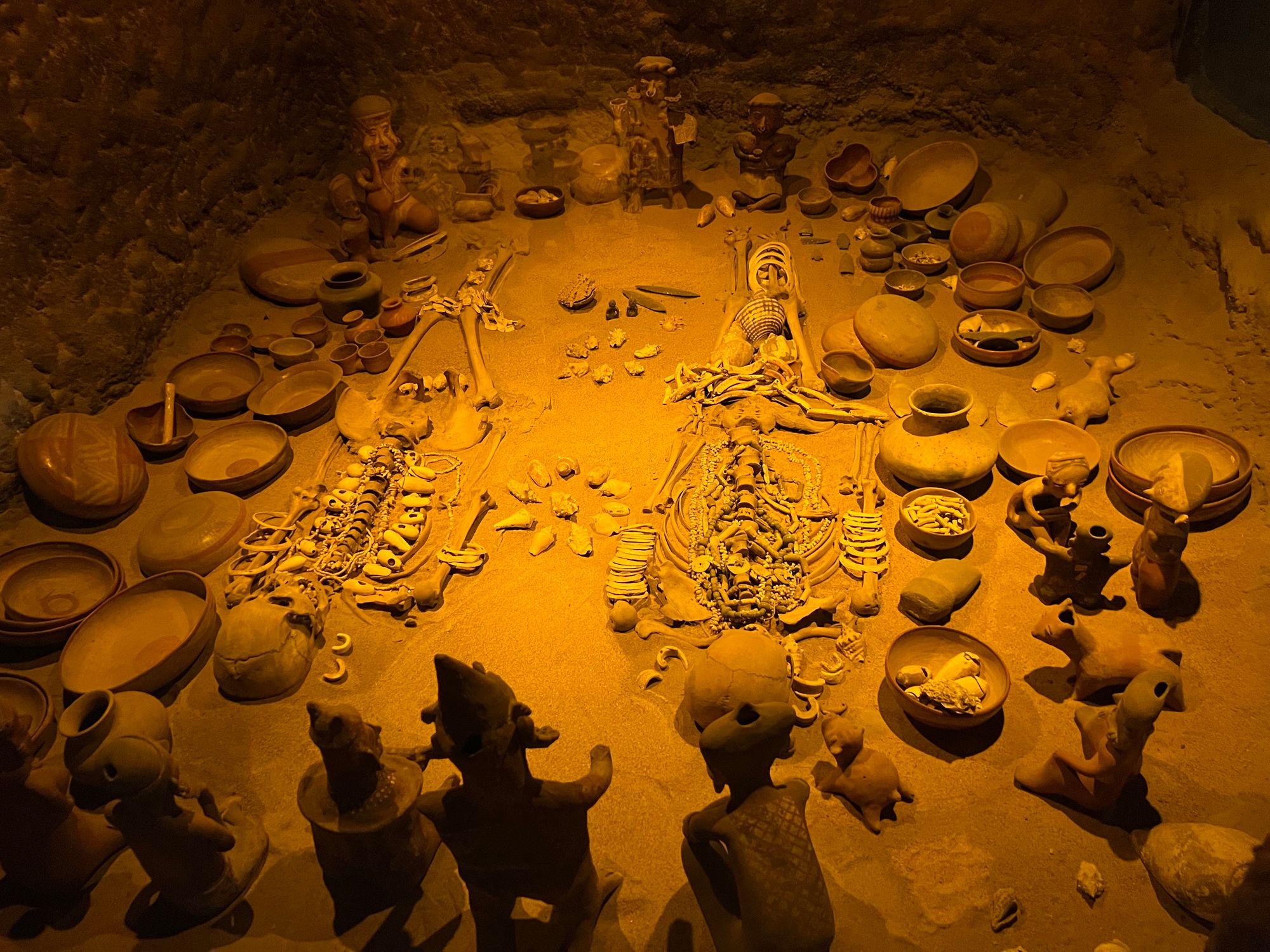Unraveling the Mayan Afterlife: Rituals, Healing, and the Journey Beyond
The Mayan civilization, an ancient Mesoamerican culture renowned for its remarkable advancements in fields such as mathematics, astronomy, and architecture, also held profound and complex beliefs about life, death, and what lies beyond. Inextricably linked with these views were ritualistic practices that aimed to navigate and influence the spiritual realm.

The Mayan civilization, an ancient Mesoamerican culture renowned for its remarkable advancements in fields such as mathematics, astronomy, and architecture, also held profound and complex beliefs about life, death, and what lies beyond. Inextricably linked with these views were ritualistic practices that aimed to navigate and influence the spiritual realm. By delving into these beliefs and rituals, we can uncover fascinating insights that resonate with the principles of the Evolutive Morality philosophy.
The Mayan Afterlife: A Journey of Transformation
Mayan beliefs about the afterlife were far from simple. They did not view death as an end, but rather as a phase in an eternal cycle of life, death, and rebirth. The deceased were thought to embark on a perilous journey through the Underworld, or Xibalba, facing various trials and challenges. This idea of continuous evolution and transformation aligns with the Evolutive Morality's emphasis on constant growth and adaptation, acknowledging the dynamic nature of existence.
Rituals: Bridging the Gap between the Mortal and the Divine
Rituals played a crucial role in Mayan society, acting as a bridge between the mortal world and the divine. Ceremonies often involved offerings, sacrifices, and the use of sacred spaces, such as cenotes (natural sinkholes), believed to be portals to the Underworld. Through these rituals, the Mayans sought to influence the gods and spirits to ensure harmony and balance in their lives.
One such ritual, the "sacred ballgame" or Pok-ta-Pok, was thought to symbolize the struggle between life and death, with players representing celestial bodies moving through the cosmos. The game was often associated with human sacrifice, seen as a potent offering to the gods to maintain cosmic balance. This ritualistic worldview resonates with the Evolutive Morality's principle of interconnectedness, emphasizing the intricate ties between all aspects of the universe.
Mayan Healing Practices: The Confluence of Mind, Body, and Spirit
Mayan healing practices were rooted in the belief that health and well-being were not just physical but also spiritual. Traditional healers, or curanderos, used herbs, incantations, and spiritual cleansings to treat illnesses. They understood that balance was crucial, reflecting the Evolutive Morality's humanistic approach that values overall wellness and quality of life.
One crucial Mayan healing practice was the "sweat bath," akin to modern-day saunas. It was not merely for physical cleansing; it was a purification ritual to cleanse the soul and spirit, fostering a sense of harmony within oneself and the universe. This ritual encapsulates the core tenets of Evolutive Morality, emphasizing self-realization, personal growth, and the integration of the physical and spiritual aspects of human existence.
The Mayan Mystique and Evolutive Morality: A Harmonious Confluence
While separated by centuries, the Mayan worldview and Evolutive Morality share common threads. Both acknowledge the interconnectedness of all aspects of the universe, the importance of balance and harmony, and the dynamic, evolving nature of life.
Evolutive Morality adds to this understanding, emphasizing the role of scientific understanding and humanistic values. It sees humans as active participants in the universe, responsible for preserving and enhancing the world we live in, much like the Mayans who believed in the power of rituals to maintain cosmic balance.
Embracing the journey of Evolutive Morality, like the Mayans' view of the afterlife, is a transformative process - one of continuous learning, growth, and adaptation. The philosophy invites all individuals seeking a deeper understanding of themselves and the universe to join this dynamic voyage. Just as the Mayans believed in the cyclical nature of existence, the Evolutive Morality philosophy too acknowledges the fluidity of life and the potential for continuous evolution.
The Role of Rituals in Evolutive Morality
While Evolutive Morality may not endorse specific rituals, it recognizes the power of intentional, mindful practices in shaping our existence. Similar to how Mayan rituals aimed to harmonize the human experience with the divine, practices within the framework of Evolutive Morality aim to foster balance, growth, and interconnectedness. Mindfulness, meditation, and conscious living can all be seen as modern-day "rituals" that align us with the principles of Evolutive Morality.
Invitation to the Journey of Evolutive Morality
Evolutive Morality does not promise a definitive answer or a fixed path. Instead, it invites you on a journey of self-discovery, learning, and evolution. It encourages you to integrate scientific understanding, humanistic values, and a profound respect for the universe into your worldview.
If the Mayan civilization's fascinating beliefs and rituals resonate with you, you might find the philosophy of Evolutive Morality appealing as well. The shared values of interconnectedness, balance, transformation, and respect for the universe can provide a robust framework for understanding our place in the cosmos and our responsibility as stewards of the Earth.
As we explore these ancient traditions and philosophies, we invite you to join us at Planet Pulsar, our Evolutive Morality community. Together, we can embark on this journey of transformation, guided by the wisdom of the ancients and the insights of modern science. Like the harmony architects of Mayan civilization, we can shape a world that celebrates the intricate dance of life, death, and rebirth, fostering a future filled with growth, understanding, and harmony.




